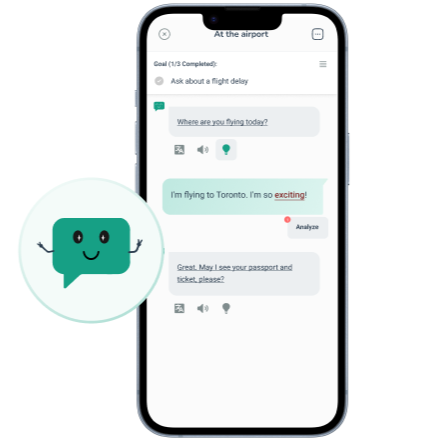
Download LingUp to continue the roleplay and get instant feedback on your grammar and pronunciation.
Try LingUp Now!Start with 'æ' as in 'cat' for the first syllable.
Next, a soft 'plɪ' with a short 'i' sound.
End with 'kəbl' where the 'e' is silent.
misplacing stress on 'pli' (ap-pli-ca-ble)
pronouncing the 'e' in final syllable (ap-pli-ca-bull)
making the 'a' in 'ap' overly long (aaap-pli-ca-ble)
Start with 'ə' as a schwa for the first syllable.
Next, a soft 'plɪ' with a short 'i' sound.
End with 'kəbl' where the 'e' is silent.
misplacing stress on 'pli' (ap-pli-ca-ble)
pronouncing the 'e' in final syllable (ap-pli-ca-bull)
making the 'a' overly pronounced (aap-pli-ca-ble)
In words with '-able', the 'e' is typically silent.
The stress is on the first syllable in American and second in British.
Practice starting with a short sound, like in 'cat'.
Something that can be applied or used in a situation.
/əˈplaɪ/
To put to use.
/ˌæplɪˈkeɪʃən/
A formal request.
/ˈæplɪkənt/
A person who applies.
In 'apply', stress is on second syllable.
In 'application', there is an added '-tion' ending.
In 'applicant', the final sound is '-ant' not '-able'.
Remember the syllable stress is key in avoiding misunderstandings.
Silent letters like 'e' in '-able' endings are common.
Test Your Pronunciation On Words That Have Sound Similarities With Applicable
Test Your Pronunciation On Words Within Other Categories